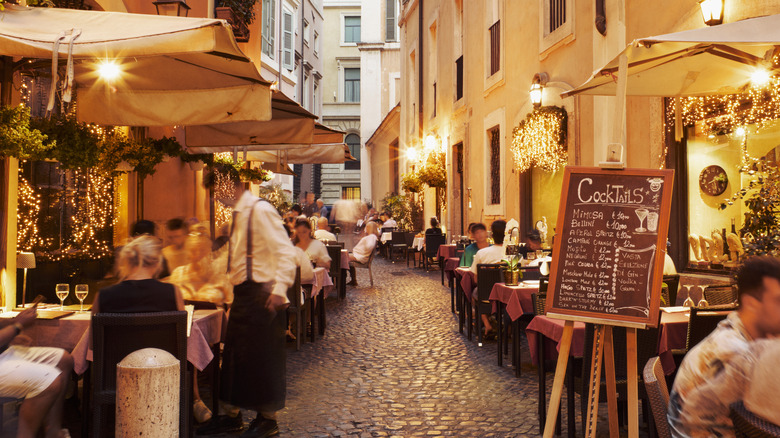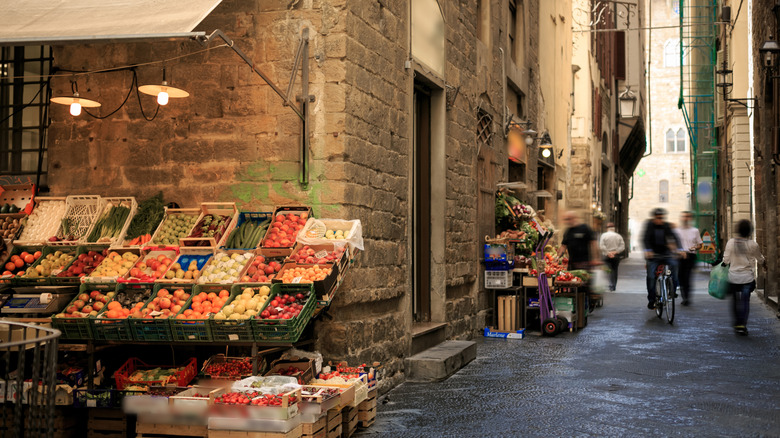The Phrase Rick Steves Uses To Ensure A Custom And Indulgent Dining Experience In Italy
If you want advice on navigating Italy's dining culture, travel guru Rick Steves has a favorite phrase for unlocking a personalized kind of experience. "For more of an indulgence, I like to put myself in the hands of the chef," Steves explains in his article, "Why I Love Eating in Italy." "Either I'll find out what they're eager to serve, or I'll simply say, 'Mi faccia felice' ('Make me happy') and set a price limit."
Steves' advice is a way of surrendering to the culinary moment and letting the chef surprise you with whatever they're most excited about making. And just like Anthony Bourdain's advice for spotting the best local places to eat, Steves says it's all about the locals. "Wherever you are in Europe, signs of a good restaurant include a low-rent location, lots of locals, and a short, handwritten menu available in only the local language," he writes.
These are not places built for tourists. They're the kinds of restaurants where a limited menu means everything is made fresh, and it's in the local language because it caters to the local palate. And the result of leaving your fate in the chef's hands will likely be a meal that you probably couldn't have dreamed up on your own, built around what's freshest at the market that day. "In fact, that's one of the reasons I like eating in a tiny restaurant — because you have contact with the chef," Steves writes. "It's like talking to your masseuse as she works."
Why Mi faccia felice leads to unforgettable food
While Rick Steves has plenty of genius tips to avoid eating like a tourist in Italy, trusting that the chef knows best is an ultimate hack. What makes this phrase so powerful isn't just that it results in good food — it's that it taps into an entire culture built around reverence for ingredients, seasonality, and hospitality. In Italy, cuisine is much more than just eating. According to Steves: "Italians are passionate about food. Cuisine is like a religion — and it's the quality of the ingredients that's most sacred."
He explains that Italians believe the best cooking starts at the market. "Some dishes are only available during a short window of time, when ingredients are at their peak," Steves says. "For instance, vignarola is a stew consisting of artichokes, peas, and fava beans. But chefs only make it for a few weeks each spring during a perfect storm of seasonality, when everything is bursting with flavor." Saying "Mi faccia felice" invites you into that ritual, giving chefs a chance to showcase what's fresh and what they're most excited to serve. Plus, in tiny trattorias, conversations with the chef might include bonuses like stories about backyard gardens and local chickens.
Part of the indulgence is that these meals often stretch into hours. It's not because of slow service, but because Italians view dinner as the evening's main event. When you finally ask for the bill — because they won't bring it unless you do — you're likely surrounded by empty plates and happy memories. So next time you're in Italy, find a humble trattoria, make eye contact with the chef, and say the words, "Mi faccia felice." You won't regret it.

